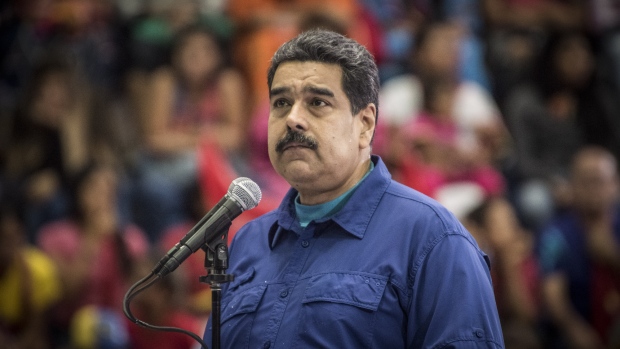Jan 29, 2019
Venezuela's Maduro blacks out social media in bid to bury Guaido
, Bloomberg News

President Nicolas Maduro is trying to drown out the forces seeking to topple his authoritarian regime in Venezuela with rolling internet blackouts and gag orders.
On Sunday, when self-proclaimed interim president Juan Guaido addressed the nation, access to Twitter’s live-streaming video app Periscope was blocked for the 12-minute duration of his speech. Last week, as Guaido called for anti-Maduro street protests, social media platforms including Facebook and YouTube were largely knocked offline by the state communications provider CANTV, according to internet watchdog group NetBlocks.
The internet is crucial to Guaido’s ability to rally his supporters because the Maduro regime controls nearly all the television and radio stations.
One of the country’s best known radio-news anchors, Cesar Miguel Rondon, said he would would go off the air this week due to restrictions he said were being enforced by Venezuela’s telecom regulator Conatel.
“I’ve been victim of pure and harsh censorship, and it shows the fragility of a dictatorship in the face of the truth we are able tell,” Rondon said in a video posted on Instagram.
While his station, Union Radio, declined to comment on the instructions it has received from Conatel, journalists at private radio stations said they have been warned by the regulator not to mention Guaido’s name, discuss the number of people killed in recent demonstrations or talk about any matter that could cause “uneasiness” to the listener, according to three people with direct information about the situation.
The government, which has long clashed with with private media outlets, has increased its effort to suppress news on the rise of Guaido, whose claim to Venezuela’s presidency has the backing of the U.S., Canada, the U.K. and most Latin American countries. Following a 2002 coup attempt that led to the brief ouster of Maduro’s mentor, the late Hugo Chavez, dozens of radio stations and a handful of cable channels were closed as Chavez largely blamed the outlets for the botched overthrow.
One of Venezuela’s biggest dailies and few remaining Maduro critics, El Nacional, stopped running its print version last month, blaming prolonged and ongoing government harassment and a lack of advertisers due to the country’s crippled economy. A shell of its former version remains online.
“There’s not a lot of media to get informed. I sometimes hear what’s happening because I go on the internet and Google for news,” said Daysy Serpa, a 38-year old shopkeeper walking through a shopping center in Eastern Caracas. “There’s not even papers to read anymore.”










